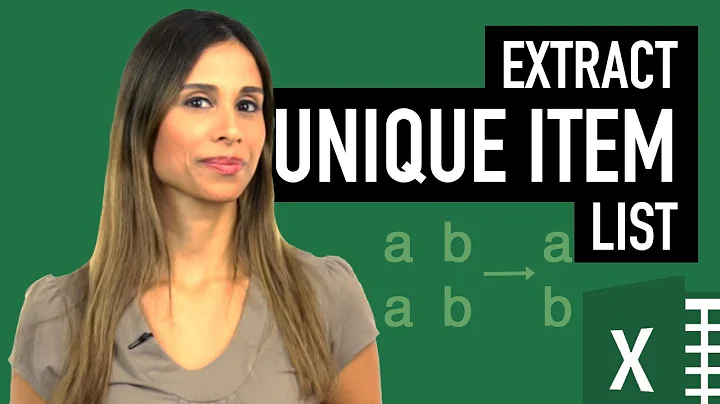Add distinct items from a list to another list
Solution 1
OP's comments are vague.
Option 1: Unique numbers from across all multidimensional arrays
List<int> UniqueList = new List<int>();
UniqueList = LongList.Select(i => Flatten(i))
.SelectMany(i => i)
.Distinct()
.ToList();
This would turn { [[0, 1], [2, 3]], [[2, 2], [4, 5]] } to { 0, 1, 2, 3, 4, 5 }
See below for Flatten
Option 2: Unique multidimensional arrays by values
NB: Assumes size and number of dimensions of each multidimensional array match.
List<int[,]> UniqueList = new List<int[,]>();
foreach (var e in LongList)
{
IEnumerable<int> flat = Flatten(e);
if (!UniqueList.Any(i => Flatten(i).SequenceEqual(flat)))
{
UniqueList.Add(e);
}
}
This would turn { [[0, 1], [2, 3]], [[0, 1], [2, 3]], [[2, 2], [4, 5]] } to { [[0, 1], [2, 3]], [[2, 2], [4, 5]] }
See below for Flatten
Option 3: Unique references only
UniqueList = aList.Distinct().ToList();
NB: This was the original answer, for context on the comments.
Flatten Method
In all cases Flatten is taken from Guffa's SO Answer
public static IEnumerable<T> Flatten<T>(T[,] items) {
for (int i = 0; i < items.GetLength(0); i++)
for (int j = 0; j < items.GetLength(1); j++)
yield return items[i, j];
}
Other options
If OP would like something else (e.g. flattenting List<int[,]> to List<int[]> or support for different sized multidimensional arrays) they will have to comment back.
Solution 2
Based on OP's update, we just need to remove duplicate references. So we do not need to compare on a per-value basis. Distinct should do:
UniqueList = LongList.Distinct().ToList();
Related videos on Youtube
Glitchezz
Software Engineer undergraduate. Just trying to make my way into the World of coding!
Updated on June 04, 2022Comments
-
Glitchezz almost 2 years
I would like to accomplish what the title states but I don't know how to go about doing so.
I have 2 lists:
public List<int[,]> LongList = new List<int[,]>(); public List<int[,]> UniqueList = new List<int[,]>();To further explain, here's a scenario:
Puzzles:
public int[,] puzzle1 = new int [3,3] { {1,2,3}, {8,4,0}, {7,6,5} }; //[1,2,3;8,4,0;7,6,5] public int[,] puzzle2 = new int [3,3] { {8,7,6}, {1,0,5}, {2,3,4} }; //[8,7,6;1,0,5;2,3,4] public int[,] puzzle3 = new int [3,3] { {7,6,3}, {1,0,2}, {8,4,5} }; //[7,6,3;1,0,2;8,4,5]LongList contains:
LongList.Add(puzzle1); LongList.Add(puzzle1); LongList.Add(puzzle1); LongList.Add(puzzle1); LongList.Add(puzzle2); LongList.Add(puzzle2); LongList.Add(puzzle3); LongList.Add(puzzle3); LongList.Add(puzzle3);I would like Unique list to hold the UNIQUE values from LongList. AS IF this happened:
UniqueList.Add(puzzle1); UniqueList.Add(puzzle2); UniqueList.Add(puzzle3);As an equation: UniqueList = Distinct values from LongList
List is full of multiple reoccurring values & I would like to take only the unique ones and put them into
UniqueList.I'm trying to complete a puzzle and the
LongListwill contain multiple references of the same same puzzle and more. To make it simple for case of discussion:LongListvalues: 1,1,1,1,2,2,3,4,4,4,4,5,5I would like
UniqueListto contain the puzzles: 1,2,3,4,5-
 İsmet Alkan about 11 yearspossible duplicate: stackoverflow.com/questions/4639036/…
İsmet Alkan about 11 yearspossible duplicate: stackoverflow.com/questions/4639036/… -
 İsmet Alkan about 11 yearsyou can check out this question's answers, too: stackoverflow.com/questions/1388361/…
İsmet Alkan about 11 yearsyou can check out this question's answers, too: stackoverflow.com/questions/1388361/… -
 Julián Urbano about 11 years@IsmetAlkan it's not nearly duplicate
Julián Urbano about 11 years@IsmetAlkan it's not nearly duplicate -
 Julián Urbano about 11 yearsWill you have the same objects several times, or different objects with the same content?
Julián Urbano about 11 yearsWill you have the same objects several times, or different objects with the same content? -
Matt Mitchell about 11 yearsThe issue is that there's no inbuilt comparator that is appropriate, or even a good equality operation for multidimensional arrays. Leveraging some of the examples at stackoverflow.com/questions/4423318/how-to-compare-arrays-in-c perhaps might help.
-
 İsmet Alkan about 11 years@caerolus I don't think it's exact duplicate too, I said possible as you see, but it's absolutely "nearly" duplicate, I think.
İsmet Alkan about 11 years@caerolus I don't think it's exact duplicate too, I said possible as you see, but it's absolutely "nearly" duplicate, I think. -
 İsmet Alkan about 11 yearsI don't think he needs array comparison here, according to list values he gave now.
İsmet Alkan about 11 yearsI don't think he needs array comparison here, according to list values he gave now. -
Matt Mitchell about 11 yearsAre you actually using multidimensional arrays? This doesn't make as much sense if you are
-
 Julián Urbano about 11 yearsShouldn't the uniqueList be
Julián Urbano about 11 yearsShouldn't the uniqueList beList<int>then? -
Glitchezz about 11 yearsYeah I using multidimensional arrays (I'm 100% sure), they hold the states for the puzzle I'm trying to solve. What do you suggest doesn't make sense?
-
Matt Mitchell about 11 yearsOr, if you wanted to flatten each
int[,]individually, perhaps aList<int[]>? -
Matt Mitchell about 11 yearsLet's say you have a two element list with: { [[0, 1], [2, 3]], [[2, 2], [4, 5]] }. Do you turn that into { 0, 1, 2, 3, 4, 5 } or { [ 0, 1, 2, 3 ], [ 2, 4, 5] } ?
-
Glitchezz about 11 yearsNeither I believe (forgive me if I'm wrong). Please check edited question.
-
Matt Mitchell about 11 yearsWhat happens if there's another puzzle (puzzle4) with exactly the same values as puzzle3? Should it be included?
-
Glitchezz about 11 yearsHi Matt, thank you for your patience (also caerolus). That scenario shouldn't arise so I don't believe it will be a problem.
-
-
Matt Mitchell about 11 yearsDepends on your definition of 'unique'. I ran a test in LINQPad and it matched my intuition. I'll grab the code and post back.
-
 Julián Urbano about 11 yearsI just checked and it doesn't.
Julián Urbano about 11 yearsI just checked and it doesn't. -
Glitchezz about 11 yearsBy unique I mean: List would contain values: 1,1,1,2,2,2,2,3,3,4,4,4,4,5 (made simple for explanation as they're actually multi dimensional results). And I only want UniqueList to hold: 1,2,3,4,5
-
Matt Mitchell about 11 yearsYeah it performs reference equality, not same value equality. Okay deleting my answer as it's incorrect for what the OP wants.
-
Matt Mitchell about 11 yearsI don't think your explanation is simplifying. It actually complicates it. Can you give a multi-D example of what you're after? It sounds like only the unique numbers across all multi-dimensional arrays? Or a set of multi-dimensional arrays that only contain the unique numbers in each corresponding source array?
-
Glitchezz about 11 yearsIm sorry, please have a look at my edited question. If you need more info please let me know!
-
Matt Mitchell about 11 yearshaha my first answer... I'm upvoting you anyway for being as patient with this as I was :-)
-
 Julián Urbano about 11 yearsI was just thinking about it...update yours and let that be the answer :-) btw...I'm not sure if it's really just references or he just made that example to keep it simple...
Julián Urbano about 11 yearsI was just thinking about it...update yours and let that be the answer :-) btw...I'm not sure if it's really just references or he just made that example to keep it simple... -
Matt Mitchell about 11 yearsBased on his comment that it "contains multiple references of the same puzzle" you sound like you've interpreted it right to me.
-
 Julián Urbano about 11 yearsnot sure, really. +1 to you too and let him decide what he means :-)
Julián Urbano about 11 yearsnot sure, really. +1 to you too and let him decide what he means :-) -
Glitchezz about 11 yearsThanks a lot guys! If I were to call upon the unique list like so: UniqueList[0] UniqueList[1] UniqueList[2] I would need that to grab puzzle1, puzzle2 & puzzle 3 (with NO duplicates that the LongList holds).. Does this code provide that?





